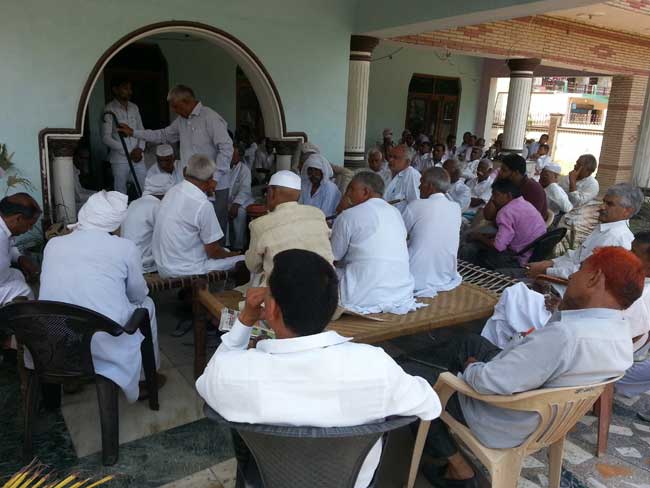
A law that sets mandatory educational qualifications for candidates contesting panchayat elections in Haryana was upheld by the Supreme Court.
But the Bharatiya Janata Party (BJP) hit back at the Congress saying that while efforts are being made to take country forward.
One of the clauses in the law passed by the two states makes it clear that only those having minimum educational qualifications will be eligible to contest the panchayat elections.
Haryana’s law has been upheld by the Supreme Court.
“It hurts the constitutional right. All have right to vote and thus contest. No pre-condition can be imposed,” Congress leader and former Union minister Anand Sharma said.
However, Environment Minister and senior BJP leader Prakash Javadekar said while efforts are being made to take the country forward, Congress was “setting the clock backward” by opposing the law which has been upheld by the judiciary. He said since it pertains to local polls, states have framed the law and it is not an all India decision.
Congress leader in the Lok Sabha Mallikarjun Kharge said the pre-condition imposed is “irrational” as those having a right to vote should also be free to contest.
He said such a law is “practical” when the level of literacy is anywhere between 90 per cent and 100 per cent. Otherwise it will “deny people a level playing field”.
BJP Secretary Siddharth Nath Singh said there was need to spread education in the country and such laws work as incentive for people regarding literacy. He said efforts should not be made to take the country “backward”.
In Haryana, the minimum education criteria to contest panchayat elections is completion of matriculation in case of general candidates; completion of class VIII for a woman candidate or a candidate belonging to Scheduled Caste; and completion of class V for a Scheduled Caste woman candidate contesting for the post of ‘panch.’
In Rajasthan, it is mandatory for individuals contesting zila parishad or panchayat samiti elections to have a minimum educational qualification of Class X. In case of a sarpanch, the minimum qualification was set at Class VIII and, in the Scheduled Areas, it was Class V.
